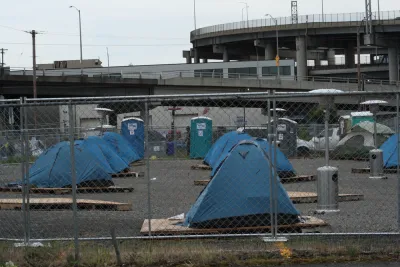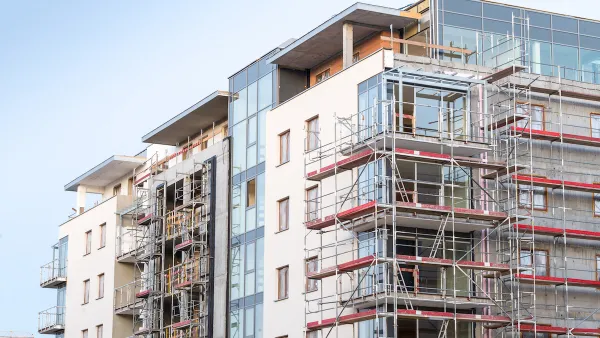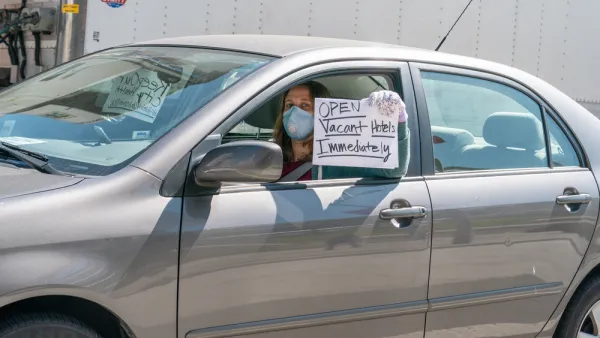Advocates point to a bevy of successes in slowing the spread of the virus, but authorities struggle with cost burden.

When COVID-19 swept across the United States last spring, it prompted a bevy of emergency public health responses, including the leasing of hotel and motel rooms to safely house vulnerable homeless people. Though far from perfect, the projects got thousands of people into non-congregate shelter and helped prevent further COVID outbreaks. As the pandemic drags on, state and city officials are looking to expand or revive those leasing efforts, or outright buy hotels as a permanent housing solution. What is driving the expansion, and why do some communities still avoid the hotel housing model?
Hotel rooms had been used to house people on the verge of homelessness for years before COVID-19, but the risk posed by the pandemic spurred local governments to lease these rooms at a larger scale. In some cases, local governments that once housed a few hundred people now house thousands, and they’re doing it with greater urgency than ever before.
Advocates of expanding the use of hotel rooms for this purpose point to the struggles facing the hospitality industry. Occupancy is down as both leisure and business travel have collapsed while large gatherings go virtual and people forgo unnecessary trips. A Jan. 21 report by the American Hotel & Lodging Association (AHLA) indicates that business is not expected to return to pre-COVID-19 levels for at least three years, and that half of all hotel rooms in the U.S. will remain empty until then.
The hotel housing programs may continue to expand due to a promise of more federal reimbursement. In the past year, many programs, such as ones in California and Vermont, were aided or enabled by a FEMA policy that reimbursed 75 percent of the leasing costs. On Jan. 21, the new Biden administration ordered FEMA to reimburse local governments at 100 percent of the cost through Sept. 30.
That decision is a game changer, says ...
FULL STORY: As the Pandemic Continues, Officials Look to Long-Term Housing Options with Hotels

National Parks Layoffs Will Cause Communities to Lose Billions
Thousands of essential park workers were laid off this week, just before the busy spring break season.

Retro-silient?: America’s First “Eco-burb,” The Woodlands Turns 50
A master-planned community north of Houston offers lessons on green infrastructure and resilient design, but falls short of its founder’s lofty affordability and walkability goals.

Delivering for America Plan Will Downgrade Mail Service in at Least 49.5 Percent of Zip Codes
Republican and Democrat lawmakers criticize the plan for its disproportionate negative impact on rural communities.

Test News Post 1
This is a summary

Test News Headline 46
Test for the image on the front page.

Balancing Bombs and Butterflies: How the National Guard Protects a Rare Species
The National Guard at Fort Indiantown Gap uses GIS technology and land management strategies to balance military training with conservation efforts, ensuring the survival of the rare eastern regal fritillary butterfly.
Urban Design for Planners 1: Software Tools
This six-course series explores essential urban design concepts using open source software and equips planners with the tools they need to participate fully in the urban design process.
Planning for Universal Design
Learn the tools for implementing Universal Design in planning regulations.
EMC Planning Group, Inc.
Planetizen
Planetizen
Mpact (formerly Rail~Volution)
Great Falls Development Authority, Inc.
HUDs Office of Policy Development and Research
NYU Wagner Graduate School of Public Service





























